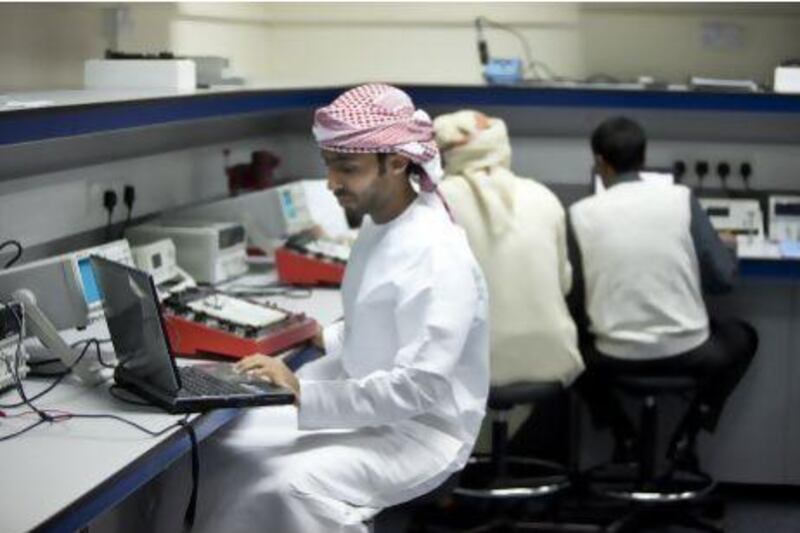The UAE Government's recently-announced Absher Emiratisation programme is a welcome tool that can help to promote information technology (IT) skills development among young people.
IT in the workplace is undergoing the biggest technology change since the internet transformed business more than 20 years ago.
Emirati organisations are known to be early adopters of new technology, recognising the potential of IT to respond to a society that is increasingly driven by sharing information and transacting in a number of ways.
The nation has also recognised the opportunities that technology offers in its goal of economic diversification.
Emiratis in their personal lives are also becoming more active - they complain on social media about bad service, they tweet about an exciting event they are attending, they shop online, they want to read their work email on their personal tablets and mobile devices.
Companies are responding to this shift by investing in faster, more powerful systems that can store and analyse vast quantities of data, respond to customer needs quickly and make companies more responsive to market movements.
These changes also have major implications for the career path of IT engineers of the future. As the world becomes more connected and more engaged online, businesses that tap into that online network and use it to do business better will stay ahead of their competitors.
Closer cooperation between IT engineers and business people will enable companies to innovate and bring new products to market faster.
History has shown that the communication gap between IT professionals and business people in most organisations is pervasive; they don't speak the same language and they have different goals.
This dissonance is a global phenomenon, but in the UAE the issue is exacerbated by a tendency for IT graduates to opt for career paths that quickly move them into IT management roles, leaving coding and engineering behind early in their career.
Companies see this as a real challenge in retaining personnel who are not only skilled software engineers, but are excited and motivated by the opportunities IT can bring to business innovation and to creating new products and services.
As the technical skills drain away, so too do the opportunities to close the gap between business and IT.
In our experience, unless the talents of young people are nurtured, and career opportunities clearly presented to them, their passion for IT will fade and they will make career choices in other directions.
Engaging programmes are needed that teach the fundamental disciplines of programming. These are skills whose importance will only increase as the world becomes more connected, and business and government use IT more to deliver better services and products.
Will the Absher initiative help turn this situation around? I believe so.
I see it adding impetus to the Government's continued efforts to involve companies in providing education programmes to young people.
It creates a structured environment for companies to continue investing in skills development in the UAE.
If the computer science and IT skills shortage is addressed at the very foundation of education - in schools - and continued through tertiary education and into the workplace, we could see a tangible enlargement of the IT software engineering skills pool in the UAE.
Alfonso Di Ianni is the Oracle senior vice president for Eastern Europe, Middle East and Africa.





